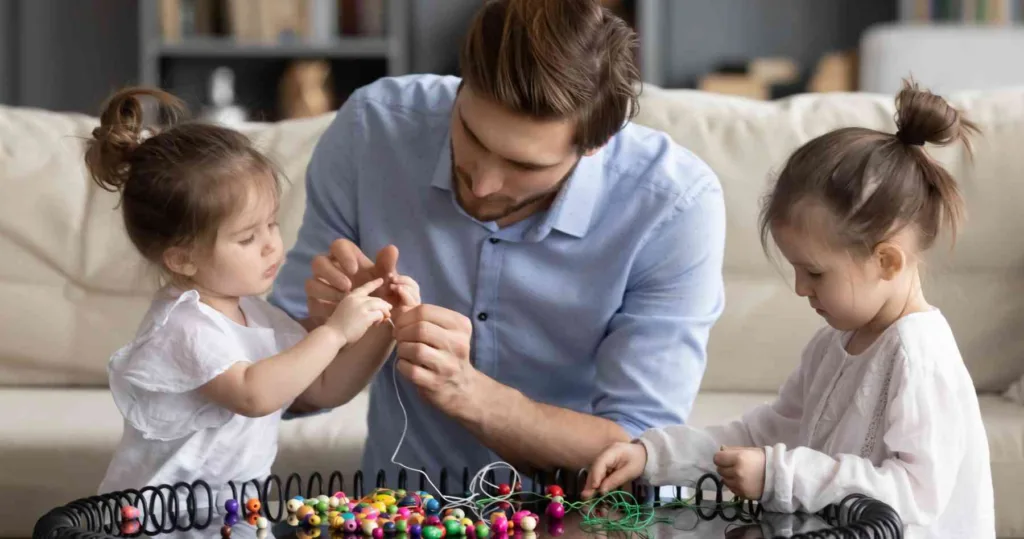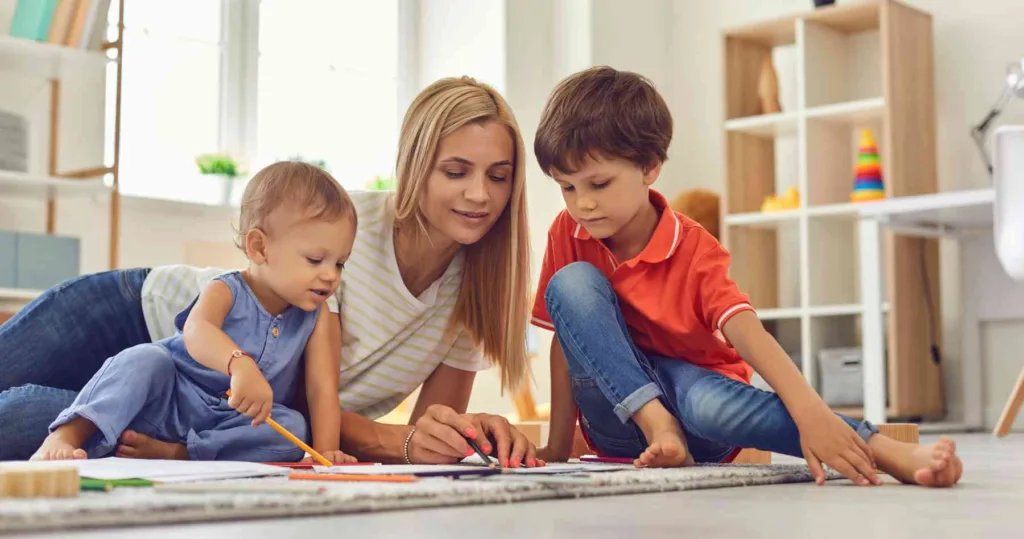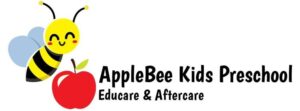Preschool and Parental Involvement: Working Together for Children's Success
Preschool and parental involvement are two critical components of a child’s educational journey. This article explores the vital importance of parental involvement in preschool education and highlights how working together can positively impact children’s success. By actively engaging in their child’s preschool experience, parents play a significant role in creating a supportive learning environment and fostering their child’s overall development. Through volunteering, attending conferences, and reinforcing learning at home, parents can contribute to their child’s academic achievement, social skills, and motivation.
Preschool education serves as the foundation for a child’s future academic and social development. While preschools provide a nurturing and stimulating environment, parents and caregivers also have a significant role to play in supporting their child’s preschool experience. By actively engaging in their child’s education, parents can enhance learning opportunities and create a strong foundation for their child’s success. This article explores the vital importance of parental involvement in preschool education and provides practical ways for parents to contribute to their child’s growth.
The Power of Parental Involvement:
Parental involvement in preschool education has proven to have long-lasting benefits for children. Studies have shown that children with actively involved parents demonstrate higher academic achievement, improved social skills, and increased self-confidence. When parents and caregivers actively participate in their child’s preschool experience, they create a positive and supportive learning environment that promotes optimal development.
Volunteering in the Classroom:
One of the most effective ways for parents to get involved in their child’s preschool education is by volunteering in the classroom. By offering their time and skills, parents can actively contribute to the learning process. They can assist teachers during activities, read stories, organize materials, or even share their professional expertise. Volunteering not only strengthens the bond between parents and their child but also shows the child that education is a valued priority.
Volunteering also allows parents to gain firsthand insights into their child’s classroom experience. By observing how their child interacts with peers and teachers, parents can better understand their child’s social and emotional development. This understanding enables parents to provide targeted support and address any areas of concern promptly.
Attending Parent-Teacher Conferences:
Parent-teacher conferences provide a valuable opportunity for parents to communicate with teachers and gain insights into their child’s progress. These meetings allow parents to discuss their child’s strengths, challenges, and goals with the teacher, leading to a collaborative effort in supporting the child’s development. By attending these conferences, parents can better understand their child’s educational needs and work with the teacher to create a tailored approach to learning.
During parent-teacher conferences, parents should actively engage in discussions with the teacher. By asking questions, seeking clarification, and sharing observations about their child’s learning at home, parents can contribute valuable information that helps teachers gain a comprehensive understanding of the child’s abilities and needs. This partnership between parents and teachers strengthens the support system for the child and ensures a cohesive approach to their education.


Reinforcing Learning at Home:
The learning process should not be confined to the walls of the preschool. Parents can extend the educational experience by reinforcing learning at home. This can be achieved by engaging in educational activities, such as reading together, practicing counting or letter recognition, and encouraging creativity through arts and crafts. By creating a home environment that promotes learning, parents enhance their child’s educational foundation and foster a love for learning that lasts a lifetime.
Parents can actively involve themselves in their child’s learning by asking open-ended questions, encouraging critical thinking, and providing opportunities for exploration and discovery. Simple activities like cooking together can teach measurement and basic math concepts, while trips to the park offer opportunities for observation and discussion. By integrating learning into daily routines and activities, parents help solidify the concepts and skills introduced in the preschool setting.
Building a Strong Partnership: Effective parental involvement in preschool education requires a strong partnership between parents and teachers. Open communication, mutual respect, and shared goals are essential for this collaboration. Parents should actively seek opportunities to engage with teachers, share their observations, and offer support where needed. Similarly, teachers should create channels for regular communication and provide resources and guidance for parents to continue the learning journey at home.
By maintaining open lines of communication, parents and teachers can exchange valuable information about the child’s progress, challenges, and achievements. Regular communication can include emails, newsletters, or even virtual platforms that allow parents to stay informed about upcoming events, classroom activities, and curriculum updates. Teachers can also provide suggestions for extending learning at home and recommend resources that align with the preschool curriculum.
In addition to formal communication channels, parents can also take the initiative to schedule meetings or request conferences with teachers whenever necessary. These interactions provide opportunities to address specific concerns, discuss strategies for supporting the child’s development, and establish a unified approach to their education.
Preschool education is a crucial stage in a child’s development, and parental involvement plays a pivotal role in ensuring its success. By actively engaging in their child’s preschool experience, parents and caregivers create an enriching environment that fosters growth, academic achievement, and social skills. Volunteering in the classroom, attending parent-teacher conferences, and reinforcing learning at home are just a few ways parents can contribute to their child’s education.
Through volunteering, parents gain insights into their child’s daily experiences and contribute to the overall classroom dynamics. Attending parent-teacher conferences allows parents to collaborate with teachers in addressing their child’s specific needs and goals. Reinforcing learning at home creates a seamless connection between the preschool environment and the child’s home life, reinforcing the importance of education in their daily routines.
By building a strong partnership with teachers, parents can lay a solid foundation for their child’s future academic success and overall well-being. Together, parents and preschools can create an environment that nurtures children’s potential and sets them on the path to a bright and promising future. When parents and educators work together, children thrive, and their preschool years become a solid foundation for a lifetime of learning.
ExcellentBased on 28 reviews Trustindex verifies that the original source of the review is Google.
Trustindex verifies that the original source of the review is Google. Pieter Kotze2022-03-11Great pre-primary school in Table View, it has been there for many years and we are now on the verge of sending the 2nd generation there and although they have been around for years, the staff are current and up to date with the latest in childcare and early childhood education, peace of mind for sure...Trustindex verifies that the original source of the review is Google.
Pieter Kotze2022-03-11Great pre-primary school in Table View, it has been there for many years and we are now on the verge of sending the 2nd generation there and although they have been around for years, the staff are current and up to date with the latest in childcare and early childhood education, peace of mind for sure...Trustindex verifies that the original source of the review is Google. Gareth Bolt2021-08-20Jackie,Maude and Applebee team look after our little boy so wonderfully!Trustindex verifies that the original source of the review is Google.
Gareth Bolt2021-08-20Jackie,Maude and Applebee team look after our little boy so wonderfully!Trustindex verifies that the original source of the review is Google. Shakurah Hackley2021-08-20My son loves his teachers. They care for our kids and go the extra mile.Trustindex verifies that the original source of the review is Google.
Shakurah Hackley2021-08-20My son loves his teachers. They care for our kids and go the extra mile.Trustindex verifies that the original source of the review is Google. Nolu Mandindi2021-08-19My daughter been a student since 2019, her brother joined her in 2021, we couldn't be happier with the professionalism shown by the staff. The constant feedback from teachers on progress is on point.
Nolu Mandindi2021-08-19My daughter been a student since 2019, her brother joined her in 2021, we couldn't be happier with the professionalism shown by the staff. The constant feedback from teachers on progress is on point.
The Impact of Parental Involvement on Children’s Education
Parental involvement in preschool education has a profound impact on children’s overall development and educational journey. When parents actively engage in their child’s preschool experience, it not only enhances their relationship with their child but also has significant positive effects on the child’s academic performance, social skills, and overall well-being. Here are some ways in which this approach can improve children’s education, as well as parent involvement in preschool activities.
Why is family involvement important in early childhood education:
Academic Achievement: Studies have consistently shown that children with involved parents tend to have higher academic achievement. When parents actively participate in their child’s preschool education, they reinforce the importance of learning and create a supportive environment that encourages educational growth. By volunteering in the classroom, attending parent-teacher conferences, and reinforcing learning at home, parents contribute to their child’s cognitive development and help them build a solid academic foundation. This is seen greatly when the importance and effects of parental involvement in early childhood education is adopted.
Through active involvement, parents can stay informed about their child’s progress, identify areas that may need additional support, and work collaboratively with teachers to address any learning challenges. This partnership between parents and educators creates a comprehensive support system that enables children to reach their full potential academically.

Social and Emotional Development: Parental involvement also plays a vital role in fostering children’s social and emotional development. When parents actively engage in their child’s preschool experience, they help develop their child’s social skills, promote positive relationships, and build their self-esteem. By volunteering in the classroom, parents model positive behavior and communication, which children observe and emulate.
Parent-teacher conferences provide opportunities for parents and teachers to discuss a child’s social interactions, emotional well-being, and overall development. By working together, parents and teachers can address any social or emotional concerns and implement strategies to support the child’s social growth.
Increased Motivation and Confidence: When children see that their parents value their education and are actively involved in their preschool experience, it significantly enhances their motivation and confidence. By volunteering in the classroom, parents show their support and enthusiasm for their child’s learning, which reinforces the child’s belief in their abilities.
Additionally, when parents engage in learning activities at home, children experience the joy of shared discovery and accomplishment. This boosts their confidence in their own capabilities and strengthens their intrinsic motivation to learn.
Seamless Learning Continuity: Parental involvement in preschool education ensures a seamless learning continuity between the preschool setting and the child’s home environment. By reinforcing learning at home and integrating educational activities into daily routines, parents create opportunities for children to practice and apply the concepts and skills learned at school.
This integration between home and preschool reinforces learning, helps children retain information, and deepens their understanding of key concepts. It also demonstrates to children the interconnectedness of their education and their daily lives, making learning more meaningful and relevant.
Get In touch
Leave us a message
4 Claret Road, Table View, 7441
(021) 556 4146
office@applebeekids.com
Holistic Development: Perhaps one of the most significant benefits of parental involvement in preschool education is its contribution to children’s holistic development. By actively engaging in their child’s education, parents nurture not only their academic abilities but also their social, emotional, and cognitive skills.
Through involvement in classroom activities, parents witness firsthand their child’s interactions with peers, problem-solving abilities, and overall development. This knowledge allows parents to provide targeted support and create a home environment that complements and extends the learning that takes place at school.
Parental involvement in preschool education is a powerful catalyst for children’s success. By actively engaging in their child’s education, parents contribute to their academic achievement, social and emotional development, motivation, and overall well-being. Through volunteering in the classroom, attending parent-teacher conferences, and reinforcing learning at home, parents create a seamless connection between the preschool environment and the child’s home life.
When parents and educators work together, children thrive, and their preschool years become a solid foundation for a lifetime of learning. By embracing and embracing parental involvement, we can create an educational ecosystem that nurtures children’s potential and sets them on a path of lifelong learning and success.
Moreover, when parents actively participate in their child’s preschool experience, they send a powerful message about the value of education. Children internalize this message and develop a positive attitude towards learning, seeing it as a collaborative effort between themselves, their parents, and their teachers.
The benefits of parental involvement extend beyond the preschool years. Research has shown that children who experience consistent parental involvement throughout their educational journey tend to have better academic outcomes, higher graduation rates, and greater overall success in life. By establishing a strong foundation of parental involvement in the preschool years, parents set the stage for continued engagement and support in their child’s future education.
In conclusion, parental involvement in preschool education plays a vital role in shaping children’s educational experiences and outcomes. By actively engaging in their child’s preschool experience through volunteering, attending parent-teacher conferences, and reinforcing learning at home, parents create a powerful partnership with educators that fosters academic achievement, social and emotional development, motivation, and holistic growth.
When parents and preschools work together, they create an environment that maximizes children’s potential, nurtures their love for learning, and sets them on a trajectory for long-term success. By recognizing and embracing importance of parental involvement in child development, we can truly unlock the full potential of every child and create a brighter future for generations to come.

